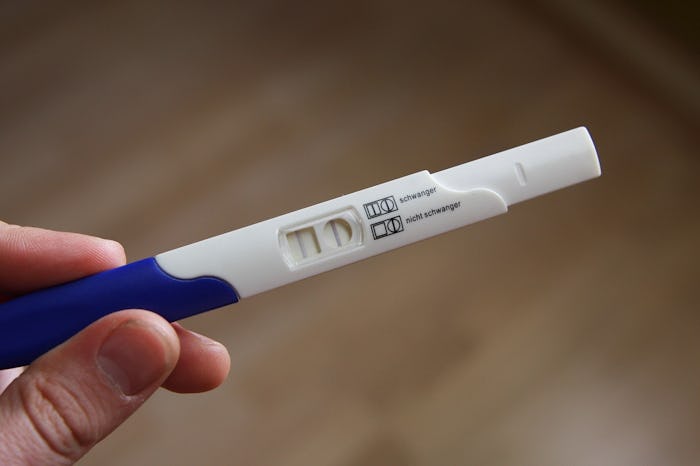The three minutes between peeing on a stick and seeing the test results can be completely, utterly nerve-wracking. (And, in some cases, vomit-inducing.) Once those lines do magically appear, however, the process can become confusing AF. Knowing how to read a pregnancy test may seem simple, but the blurred lines can leave woman scratching their heads. And although the logical step is to go to your doctor for a legitimate test (you'd have to that if the results were clearly positive anyways), no one wants to wait on life-changing news.
Your local pharmacy's shelves are stocked with several different brands and types of home pregnancy tests, but one thing remains consistent — in order to see a positive pregnancy test result, your body needs to be producing enough of the human chorionic gonadotropin (hCG) hormone for a test to detect it in your urine, according to Baby Center. From the moment you get pregnant, your hCG levels begin to rise rapidly. Some pregnancy tests are branded as sensitive and can detect hCG within the first few days of a woman's missed period. As WebMD explained, however, most tests should be able to give an accurate result about a week after a woman's missed period.
To help get more accurate results, Parents suggested you take your pregnancy test in the morning when your urine is less diluted. You also want to make sure that the expiration date on the test hasn't passed and that you follow the package instructions carefully. It's important to wait the recommended amount of time before checking the results to make sure the test is accurate.
Whether you're looking for lines, color changes, or a plus sign, it's a good idea to have someone else take a look at the test to confirm the results. If you get a faint positive and are unsure of the result, Baby Center suggested you repeat the test at home a few days later. The site also noted that, a faint positive test that turns completely negative when you retest after a few days could mean that you had an early miscarriage. If the test shows that you are pregnant, it's a good idea to make an appointment with your doctor to confirm the results and discuss your options for prenatal care.
